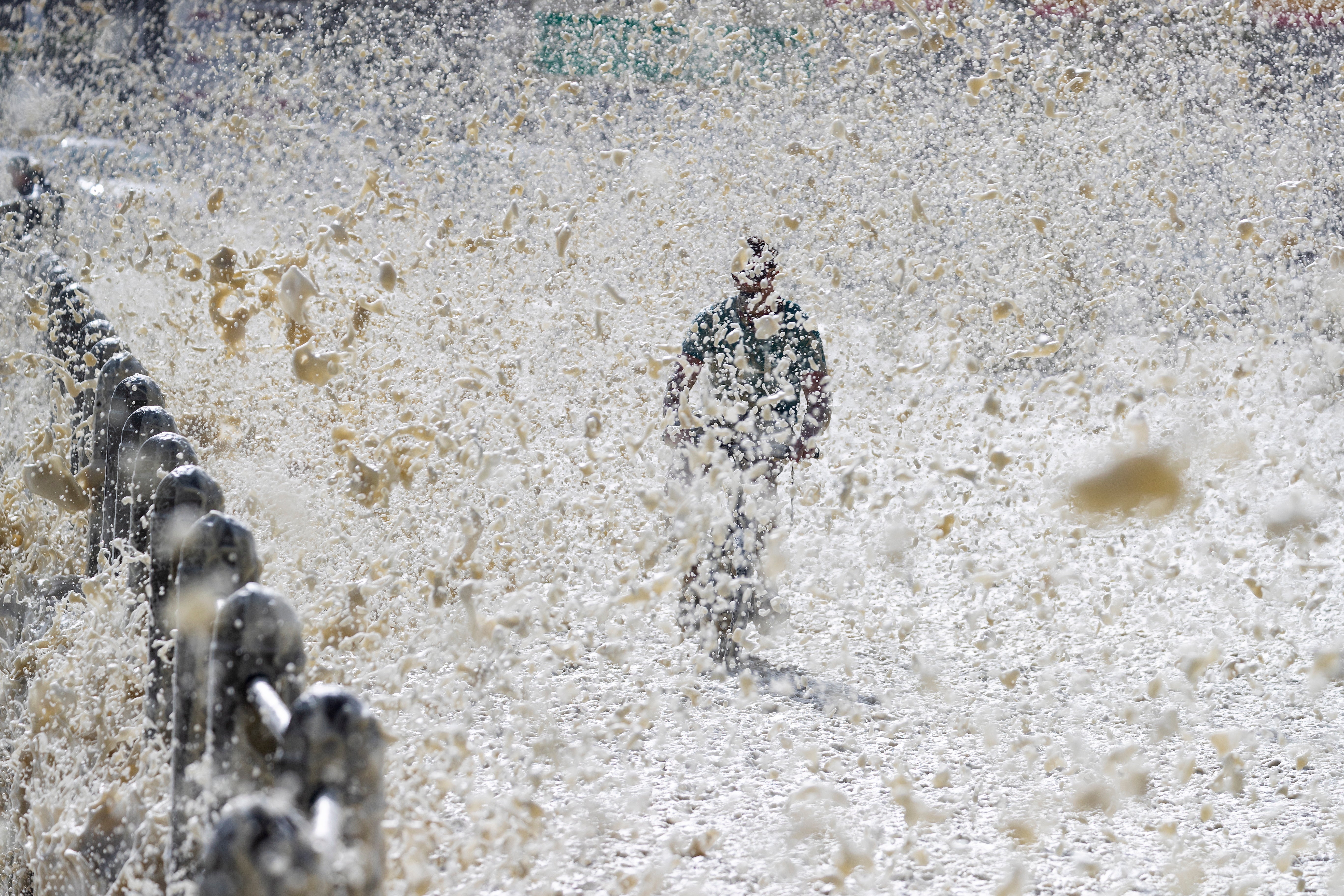What is sea foam and how is it formed?
Storms and decaying algal matter help form strange coastal phenomenon

Your support helps us to tell the story
From reproductive rights to climate change to Big Tech, The Independent is on the ground when the story is developing. Whether it's investigating the financials of Elon Musk's pro-Trump PAC or producing our latest documentary, 'The A Word', which shines a light on the American women fighting for reproductive rights, we know how important it is to parse out the facts from the messaging.
At such a critical moment in US history, we need reporters on the ground. Your donation allows us to keep sending journalists to speak to both sides of the story.
The Independent is trusted by Americans across the entire political spectrum. And unlike many other quality news outlets, we choose not to lock Americans out of our reporting and analysis with paywalls. We believe quality journalism should be available to everyone, paid for by those who can afford it.
Your support makes all the difference.The strange coastal phenomenon of sea foam has been witnessed along parts of Australia’s eastern coastline, a rare but not unnatural occurrence that forms when rough seas churn up disintegrating organic matter, such as algae.
Coastlines from Lancashire to South Africa have on occasion been inundated by the white lathery substance, often as a result of severe storms.
Sea foam is created when the ocean is disturbed by wind and waves. Tiny particles of fats, algae, fish scales, bits of coral and other pollutants that are suspended in the water are churned up, creating a thick foam.
This is much like the bubbles caused by a bottle of water or other liquid being shaken vigorously, though on a larger scale.
When significant amounts of decaying algal matter wash ashore, the disconcerting sight of a wall of murky foam can be witnessed.
With the right conditions, such as when algae blooms or a large school of fish dies, foam can engulf entire beach towns.
According to the US National Ocean Service, sea foam is usually harmless to humans and typically indicates a productive offshore ecosystem.
However, depending on the algae present, as bubbles within the foam pop they can release airborne toxins which may irritate eyes and lungs.
It can also be hazardous to wildlife. For example, a study into the unexplained death of seabirds along the US west coast found that foam from a decaying algae bloom had stripped the waterproofing from their feathers, making it harder for the birds to fly and causing hypothermia.

Join our commenting forum
Join thought-provoking conversations, follow other Independent readers and see their replies
Comments